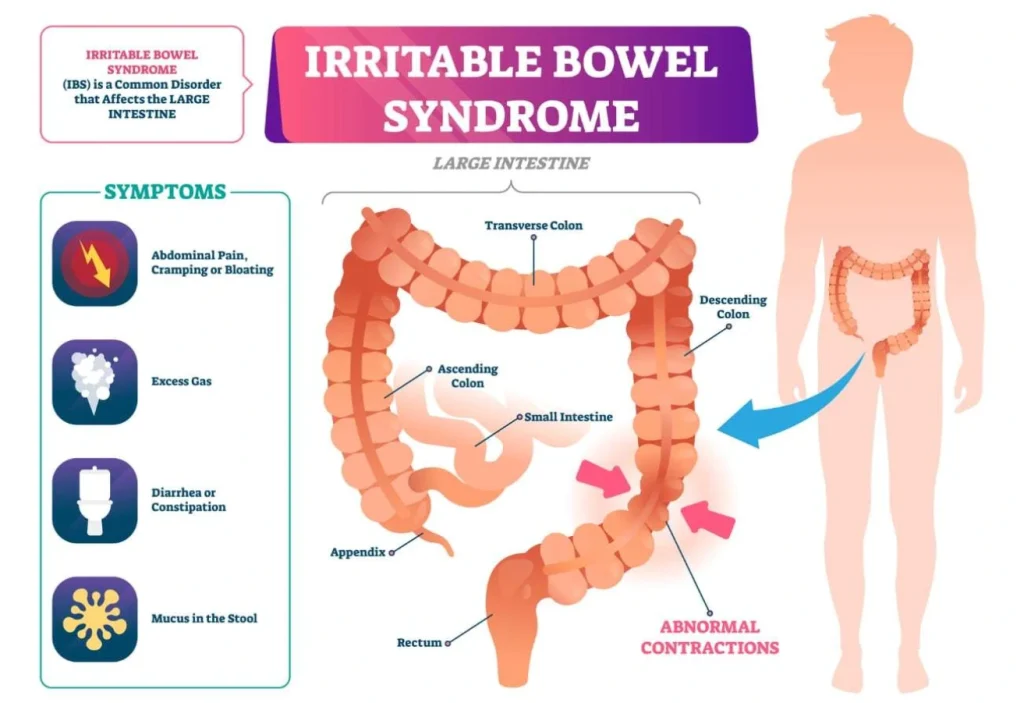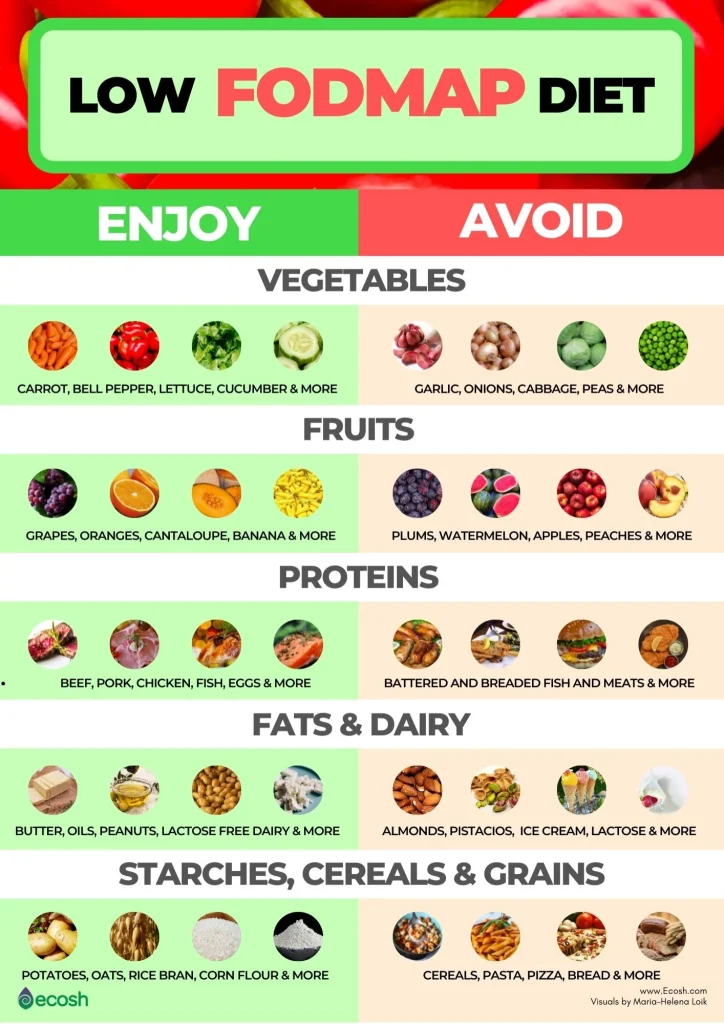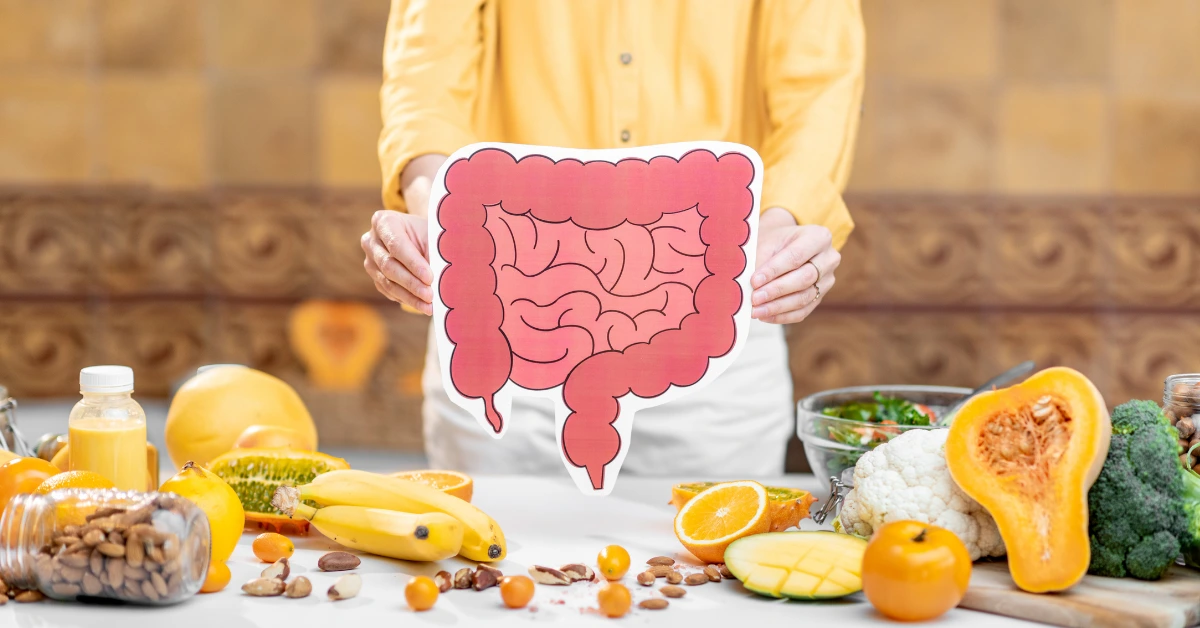Irritable Bowel Syndrome, commonly known as IBS, is a chronic digestive disorder that affects an estimated 10–15% of the global population, though many cases remain undiagnosed. It’s a functional gastrointestinal condition, meaning there’s no visible damage to the digestive tract — yet the symptoms can be deeply disruptive to everyday life.
Common signs include bloating, abdominal pain, gas, diarrhea, constipation, or alternating between both. For many, these symptoms are unpredictable and triggered by food, stress, or hormonal changes, making IBS not only a physical issue but also an emotional one.
While there’s no known cure, many people find relief through natural remedies, lifestyle changes, and mindful eating habits that help soothe and support gut health.
First of all, you need to be aware of what might cause gut irritation when you have IBS. Common gut irritants include: dairy products, caffeine, alcohol, fatty or fried foods, artificial sweeteners (like sorbitol or xylitol), cruciferous vegetables (e.g., cabbage, broccoli — for some people), carbonated drinks.

Image Credit: Ecosh
But there are natural remedies that can help you to soothe IBS
- Peppermint Oil or Tea
Peppermint has antispasmodic properties that help relax intestinal muscles and reduce cramping and bloating. Peppermint tea is gentle and easy to drink after meals. Peppermint oil capsules may also help but should be enteric-coated to avoid heartburn. - Fennel Seeds
Fennel seeds can ease gas, relieve bloating, and improve digestion. Chew ½ tsp of fennel seeds after meals or steep them in hot water to make a soothing tea. - Ginger
Ginger supports overall digestive health and can help relieve nausea, cramping, and bloating. Fresh ginger tea or adding grated ginger to meals can make a noticeable difference. - Turmeric
Known for its anti-inflammatory properties, turmeric can help soothe the gut lining and reduce IBS flare-ups. Try turmeric tea or add it to smoothies, soups, or rice dishes. - Chamomile Tea
Chamomile is calming for both the gut and the nervous system. It reduces intestinal spasms and supports better digestion while helping with anxiety, which can trigger IBS symptoms. - Probiotic-Rich Foods
Incorporate natural probiotics like yogurt with live cultures (or plant-based alternatives), kefir, sauerkraut, kimchi, or miso to help restore healthy gut bacteria. - Aloe Vera Juice (Unsweetened)
Aloe vera may help soothe inflammation in the gut and support regular bowel movements. Be sure to choose a low-FODMAP, decolorized version to avoid irritants. - Psyllium Husk
A soluble fiber that can improve both constipation and diarrhea by regulating bowel movements. Start with a small amount mixed with water or smoothies.

Image Credit: Ecosh
Wellness Tips for IBS Management
- Eat smaller, more frequent meals instead of large portions. It puts less stress on the digestive system.
- Keep a food diary to track what triggers your symptoms and identify patterns.
- Practice mindful eating — chew slowly, avoid eating when stressed or in a rush, and focus on your food.
- Incorporate regular physical activity, like walking or yoga. It improves digestion and lowers stress.
- Manage stress effectively through techniques like meditation, deep breathing, or journaling.
- Prioritize sleep — poor sleep can worsen IBS symptoms and disrupt gut-brain communication.
- Stay hydrated with plenty of water, especially if you’re experiencing diarrhea.
- Avoid multitasking while eating — watching TV or scrolling on your phone can reduce digestion efficiency.
- Consider low-FODMAP eating, a clinically proven approach that eliminates certain fermentable carbs. Always try under guidance from a nutritionist or dietitian.

